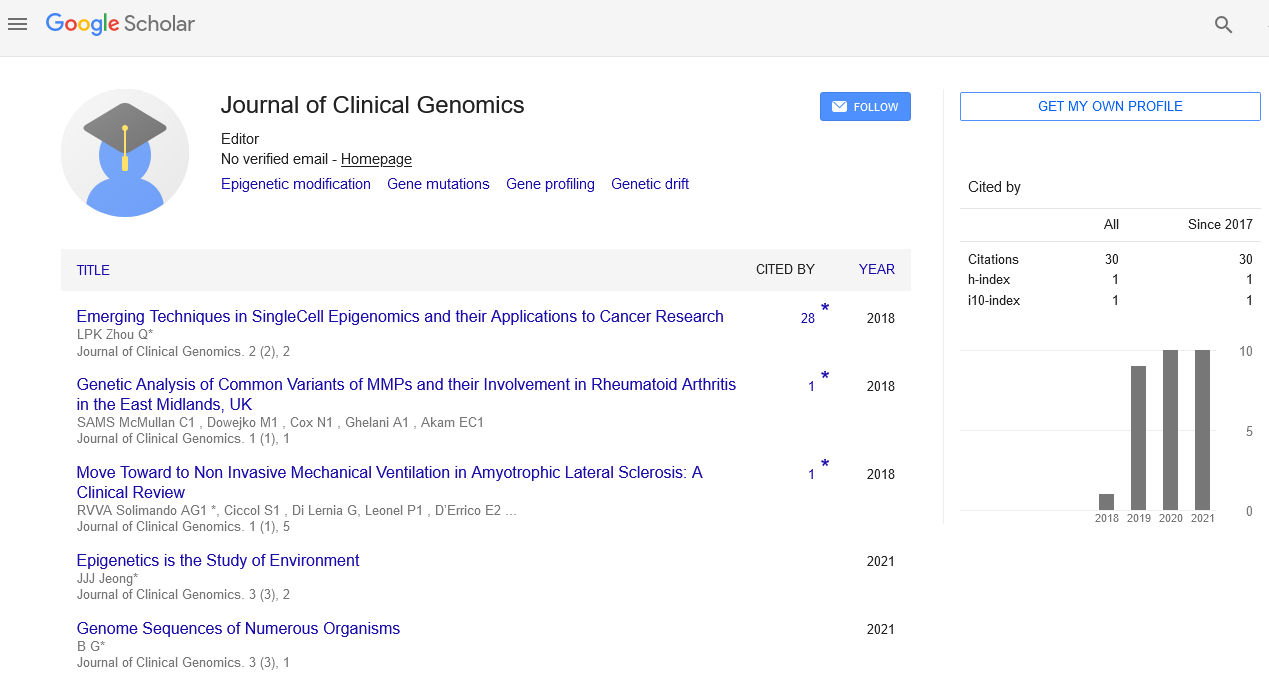Editorial, J Clin Genom Vol: 7 Issue: 1
Pharmacogenomics and Drug Response
Rahul Iyer*
Department of Pharmacology, Jawaharlal Institute of Postgraduate Medical Education and Research (JIPMER), Puducherry, India
- *Corresponding Author:
- Rahul Iyer
Department of Pharmacology, Jawaharlal Institute of Postgraduate Medical Education and Research (JIPMER), Puducherry, India
E-mail: rahul.iyer@jipmer.edu.in
Received: 01-March-2025, Manuscript No. jcg-25-169328; Editor assigned: 4-March-2025, Pre-QC No. jcg-25-169328 (PQ); Reviewed: 20-March-2025, QC No jcg-25-169328; Revised: 26-March-2025, Manuscript No. jcg-25-169328 (R); Published: 30-March-2025, DOI: 10.4172/jcg.1000142
Citation: Rahul I (2025) Pharmacogenomics and Drug Response. J Clin Genom 7:142
Introduction
Pharmacogenomics studies how genetic differences influence drug efficacy and safety. This field allows for personalized drug prescriptions, minimizing adverse drug reactions (ADRs) and enhancing therapeutic efficacy.
Genetic Variants Influencing Drug Metabolism
Genes such as CYP2D6 and TPMT encode drug-metabolizing enzymes with functional polymorphisms [1]. For example, CYP2C9 and VKORC1 genotypes affect warfarin sensitivity [2]. Indian-specific allele frequency data is now available via initiatives like IndiGen, enabling better dose prediction for Indian patients [3].
Clinical Adoption and Case Examples
Pharmacogenomic testing is being adopted in psychiatry (antidepressants), oncology (tamoxifen), and cardiology (clopidogrel) [4]. Tertiary care centers in India have launched pharmacogenomic panels and incorporated them into clinical trials for personalized treatment planning [5].
 Spanish
Spanish  Chinese
Chinese  Russian
Russian  German
German  French
French  Japanese
Japanese  Portuguese
Portuguese  Hindi
Hindi 